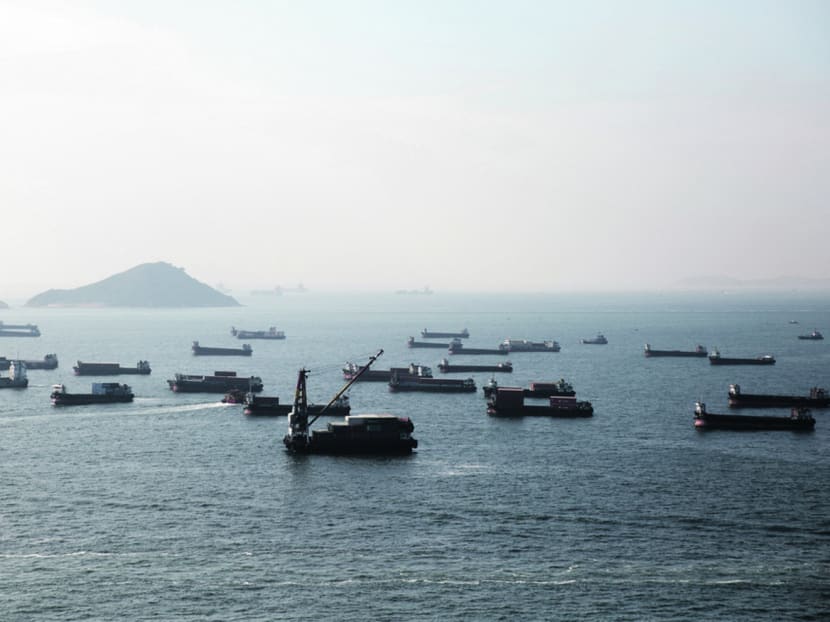Paris talks seek cap on emissions of airline, shipping firms
GENEVA — A move to cap emissions from airline and shipping companies has emerged in talks on the global climate change agreement to be signed in Paris at the end of this year.
GENEVA — A move to cap emissions from airline and shipping companies has emerged in talks on the global climate change agreement to be signed in Paris at the end of this year.
The idea of imposing carbon pollution targets on each industry has appeared in the lengthy negotiating text on which representatives from more than 190 countries began working on in Geneva last week.
The measure is being backed by countries in the European Union, which fought a bruising battle three years ago to make international airlines flying to and from Europe pay for their carbon pollution. Brussels eventually reined in its scheme, confining it to flights within the EU, after it sparked a diplomatic row with some of its largest trading partners, including China and the United States.
An additional proposal in the Paris negotiating text would “encourage” international air and shipping bodies to develop a levy scheme to help countries adapt to climate change.
Aviation is one of the fastest-growing sources of greenhouse gas emissions that the Paris deal is supposed to reduce, but the measure is expected to be opposed by many countries.
Still, some envoys in Geneva said they were pleased to see it on the table. “We’re happy to see it being discussed,” said Ms Mary Ann Lucille Sering of the Philippines. Her country’s many islands meant air travel was important, she said, but it was a relatively small market compared with other nations.
Including shipping and aviation emissions in a global climate deal has proven difficult in the past. The last big climate pact, the Kyoto protocol agreed in 1997, required rich countries to reduce their greenhouse gas emissions, but did not include pollution from ships or aircraft, partly because it occurs around the world rather than in a single country.
Instead, it was left to each industry’s specialist United Nations agency, the International Civil Aviation Organisation (ICAO) and the International Maritime Organization, to develop a global plan to address emissions.
The ICAO is working on a proposal due to be considered next year and the International Air Transport Association (IATA), the aviation industry’s main body, said the process was going well and had been recognised by countries in the UN climate talks.
“The industry is fully supporting ICAO’s work in this area,” a representative said, adding that IATA members had agreed on a resolution in 2013 calling on governments to develop a global market-based measure in line with its commitment to carbon-neutral growth from 2020. But some say progress is still far too slow and the move to include aviation emissions, in particular in the Paris deal, is welcome.
Mr Bill Hemmings, aviation and shipping programme manager at the Transport & Environment research organisation in Brussels, said that with aviation and shipping each accounting for around 3 per cent of global carbon dioxide emissions, it was time both sectors faced targets to limit their pollution.
“How can we have large countries such as China and the US, and developing countries making commitments to cut their emissions, while these two sit on their hands?” he said.
THE FINANCIAL TIMES







